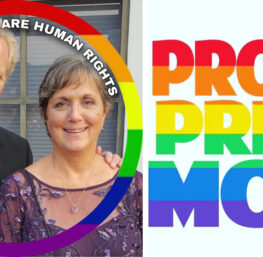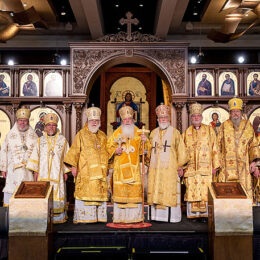June 22, 2004
They’ve finally set a date. Senate leaders have announced that members will vote the week of July 12 whether to amend the Constitution to define marriage as the union of one man and one woman.
Remember the flap over Vice President Dan Quayle’s criticism of TV’s “Murphy Brown”? Unwed births had reached a new high in the early ’90s, and the vice president lamented the nonchalant way the show’s producers treated single motherhood. Social science research has since vindicated his argument: Decisions about sex, marriage and childbearing aren’t merely personal. They have profound social consequences, particularly for children.
Read the entire article on the Heritage Foundation website.




Father Hans,
Our elected representatives are finally beginning to treat this issue as the real crisis that it is, I hope. The relentless attacks on marriage and the traditional family have gone virtually unchallenged by the legistarures and our elected officials who are too busy spending money they do not have and passing other meaningless legislations and regulations that contribute nothing to the well-being and health of our society.
The serious consequences of the breakdown of the family and the trivialization of marriage were discussed recently by Chuck Colson in his article “Take your choice: Parents or prisons?”
Chuck comments that: “I’ve been going into prisons for nearly three decades. In that time some things have changed: For example, there’s a hardness in the faces of prisoners, particularly young ones, that wasn’t there ten years ago.”
“Still, many things remain the same. For one thing, prisons are still filled with men and women from broken families. In nearly every respect, our prisons are a cautionary tale about the dangers of weakening traditional family structures. The question is: Are we listening?”
Chuck also discusses some of the results that flow directly from the unfortunate breakdown of the family. He brings to light some chilling statistics, that should send alarm bells up and down this country (if the liberal media would ever bother to address them): “The link between family breakdown and crime is well-established to the point of being almost indisputable. It’s estimated that between two-thirds and three-quarters of all inmates grew up in something other than an intact two-parent home. In some juvenile corrections systems, like that of Wisconsin, the number is closer to ninety percent.”
“Economist Jennifer Roback Morse summed up this link neatly in a recent Policy Review article: “Without parents—two of them, married to each other, working together as a team—a child is more likely to end up in the criminal justice system at some point in his life.” “More likely,” in this case, means at least twice as likely. And in lieu of family, what a child does is join a gang.”
Finally, Chuck comments: “This brings me to the obvious question: If the effects of family breakdown are indisputably calamitous, why are we so intent on accelerating the breakdown? Whether it’s the refusal to treat two-parent families as normative in textbooks, an increasing problem, or the deconstruction of marriage inherent in the campaign for same-sex “marriage,” the effect is the same: The one institution that we depend on to instill “the basic self-control and reciprocity that a free society takes for granted” is diminished.”